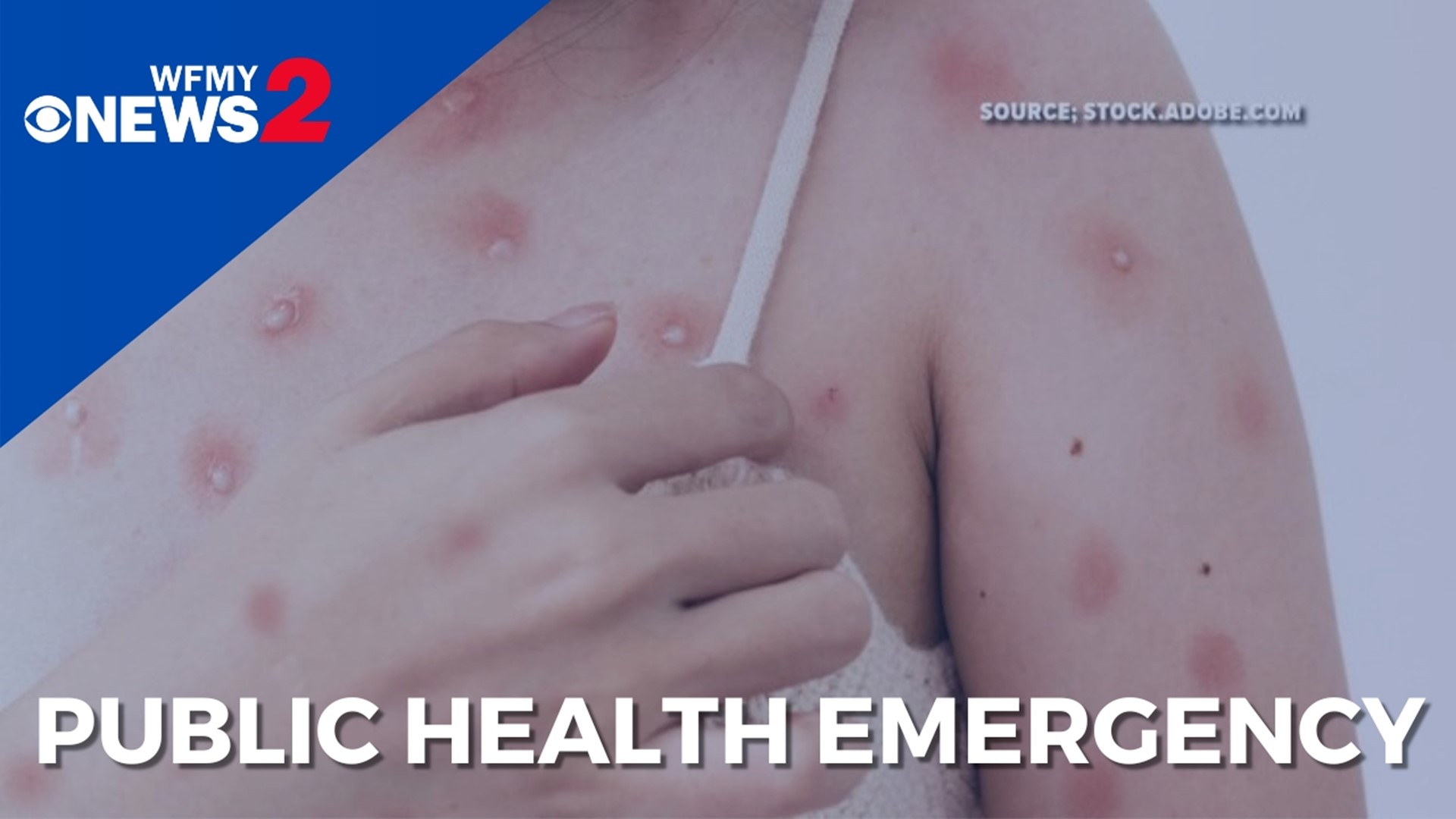RANDOLPH COUNTY, N.C. — Randolph County Public Health has confirmed the first case of monkeypox in Randolph County. The individual is currently isolating at home.
"At this time, the risk of monkeypox transmission remains low," Randolph County health director, Tara Aker said.
Monkeypox is a rare, but potentially serious viral illness that typically involves flu-like symptoms, swelling of the lymph nodes, and a rash that includes bumps that are initially filled with fluid before scabbing over. Monkeypox can look like some sexually transmitted infections or chicken pox. Most infections last two to four weeks.
Testing is available and encouraged if you have experienced close contact with someone diagnosed with monkeypox, or have unexplained bumps, sores, blisters or pimples which look like monkeypox.
Contact your healthcare provider to arrange for testing, if needed.
Vaccines are available to protect against monkeypox or to reduce disease severity.
Due to limited vaccine supply, eligibility criteria that includes prioritizing individuals with known or suspected exposure to monkeypox, are currently in place for all monkeypox vaccinations in the state of North Carolina.
Vaccine eligibility
- Anyone who had close contact in the past two weeks with someone who has been diagnosed with monkeypox.
- Gay or bisexual men or transgender individuals who report any of the following in the last 90 days: 1. Having multiple sex partners or anonymous sex 2. Being diagnosed with a sexually transmitted infection 3. Receiving medications to prevent HIV infection (PrEP)
While anyone can get monkeypox, in the current U.S. outbreak, many of the cases are in men who have sex with men. If you have an unexplained rash, sores, or other symptoms, contact your healthcare provider. Keep the rash covered and avoid sex or being intimate with anyone until a medical provider has evaluated you.
How to protect yourself
The Centers for Disease Control and Prevention (CDC) recommends the following practices to protect yourself from monkeypox:
- Avoid close, skin-to-skin contact with people who have a rash that looks like monkeypox
- Do not touch the rash or scabs of a person with monkeypox
- Do not kiss, hug, cuddle, or have sex with someone with monkeypox
- Avoid contact with objects and materials that a person with monkeypox has used
- Do not share eating utensils or cups that a person with monkeypox has used
- Do not handle or touch the bedding, towels, or clothing of a person with monkeypox
- Wash your hands often with soap and water or use an alcohol-based hand sanitizer, especially before eating or touching your face and after you use the bathroom.
To learn more about monkeypox, go to CDC's website or the North Carolina Department of Health and Human services website.

